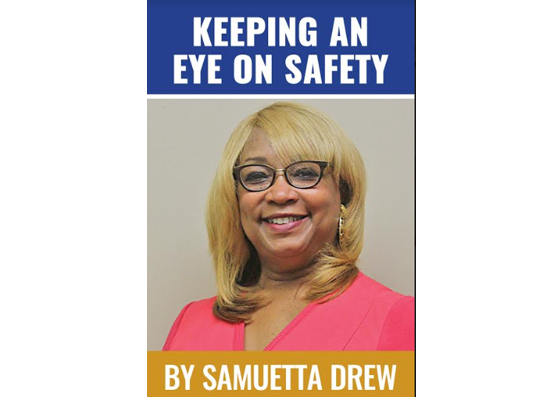By Samuetta Hill Drew
One of the national morning ABC news shows, “Good Morning America”, once aired a story about a billion-dollar cryptocurrency fraud scam being perpetrated in the United States. A man who had been a victim was interviewed. He stated once he realized that it was a scam it was too late. He added he initially was too embarrassed to tell anyone, but realized others needed to know. The news anchor emphasized cryptocurrency scams funds are not reversible – a safety topic we featured in length last month.
After that airing, I saw another public service commercial from the Federal Bureau of Investigation (FBI) warning citizens about current scams. These two occurrences, along with others, led me to cover this segment on fighting against fraudulent scams.
This week’s safety article outlines safety steps to implement that could potentially protect you from scams. There are several written by Amy Nofziger and Mark Fetterhoff, who are with AARP’s Fraud Watch Network helpline team.
Let’s begin with first three.
Clean out your wallet/purse – Prune back to the bare essentials, such as your driver’s license, a single debit card and one credit card, a bus pass, vehicle insurance card or whatever is needed daily. Remember you can always add additional items back when needed for your shopping trips. Based upon your shopping destinations, you can add your drug store discount savings card, a SAMS or Costco card, a gas card, etc. Extra credit or debit cards, Medicare or Social Security cards, photos and other such items put your identity at risk if stolen.
Update the contacts in your phone – Include those individuals/businesses who call frequently. Then, when those individuals/businesses call, their identity will be displayed on your phone. Next, go into settings on your phone and turn on “silence unknown callers” for iPhones and “block numbers” on Android phones. This will block numbers that you have never been in contact with and are not saved in your contact list.
Add phone logins protections – A Pew survey showed that more than one in four smartphones users did not have a barrier to keep others from using their devices. Make sure you have a passcode, facial ID or finger scan enabled on your phone. This step helps further protect you.
These three fraud prevention checklist steps are a great beginning for you to help Keep an Eye on Safety to protect yourself and your wallet against fraudulent scams.
This article originally appeared June 8, 2022 on birminghamtimes.com.




